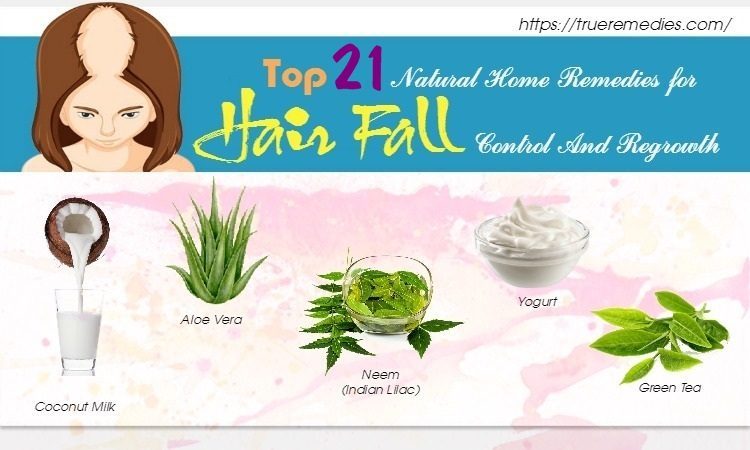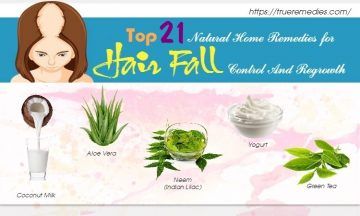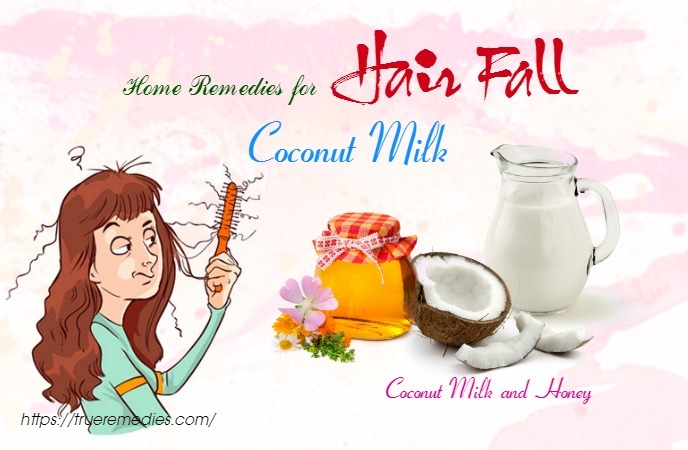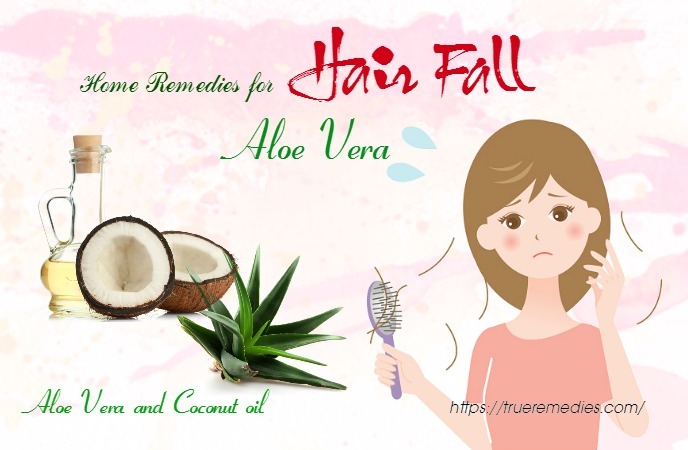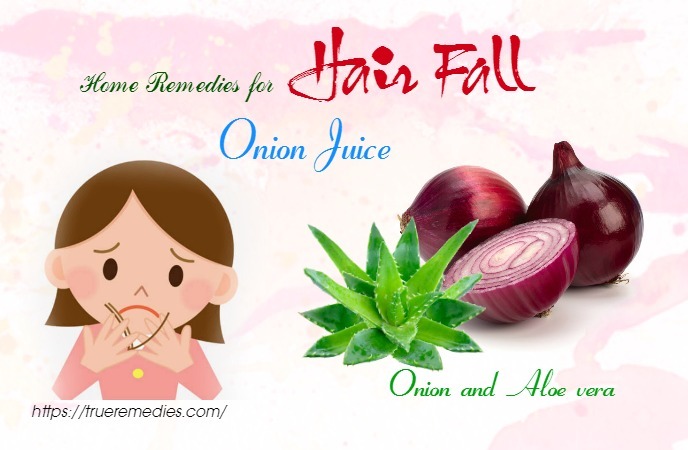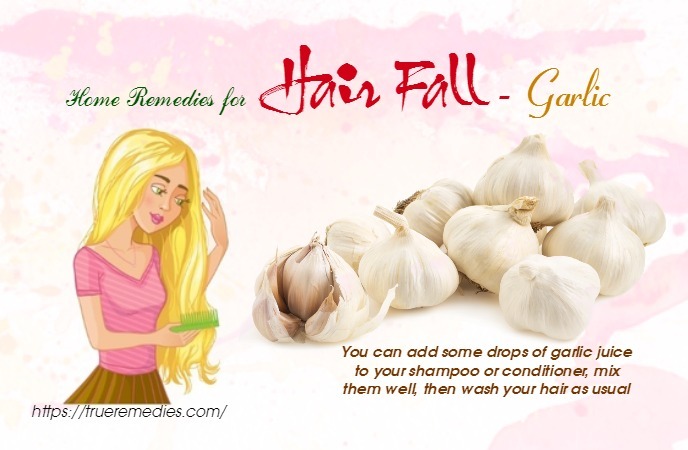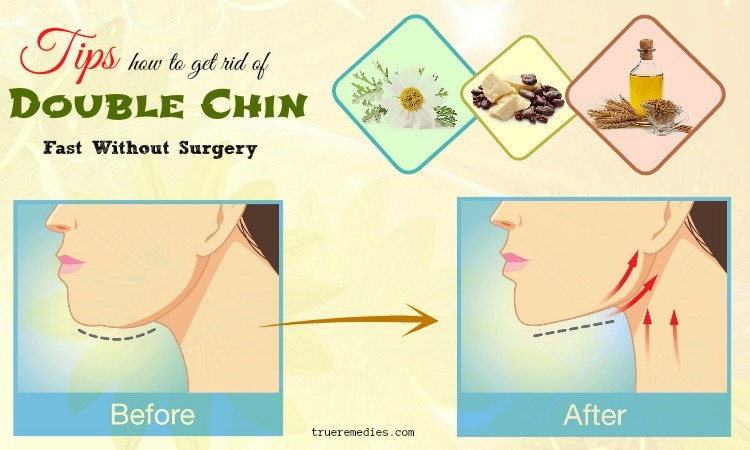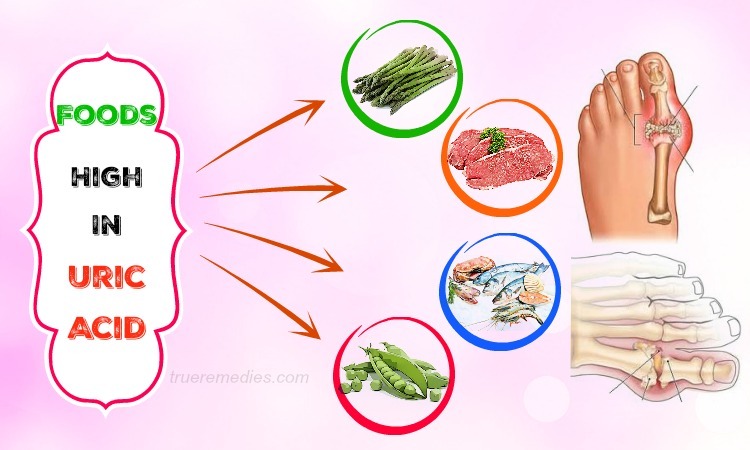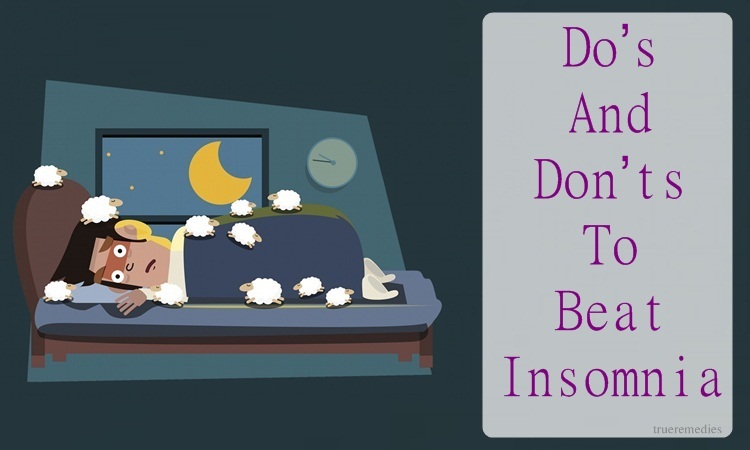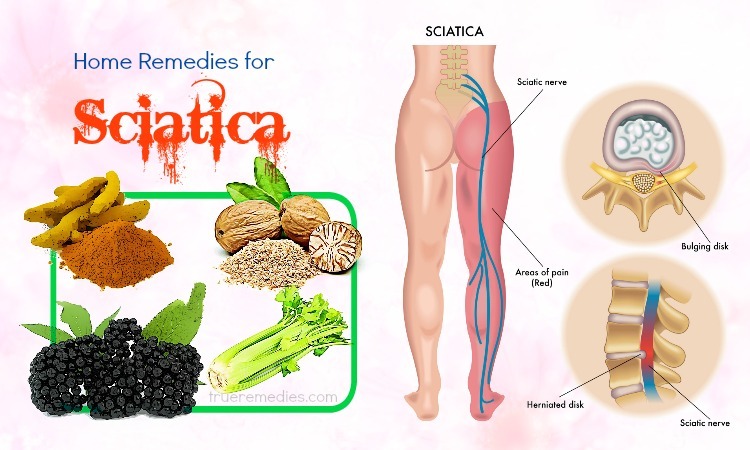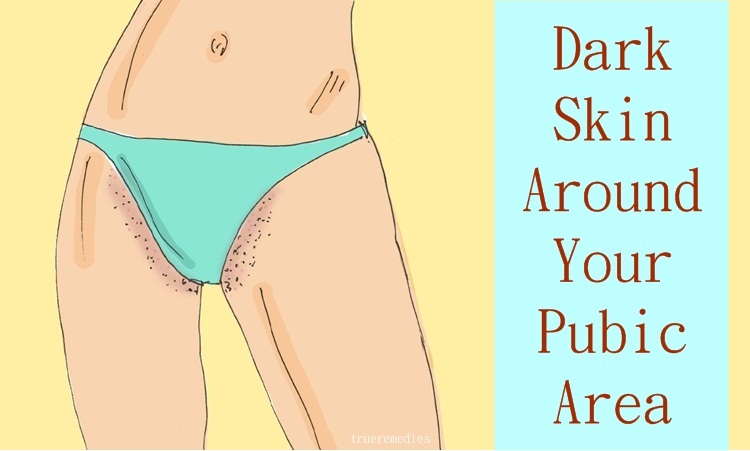updated: 11/23/2019
Contents
Hair fall is a problem that a lot of people are facing nowadays. In most cases, hair fall is a normal aging process and is not seen as a life-threatening disease to doctors. However, hair fall is still becoming a common concern of many people. In some people, hair loss causes psychological distress. Thankfully, with the help of some natural treatment, you can control this problem at home. This post reveals to you some of the best natural home remedies for hair fall control and regrowth. Let’s get started!
- Home remedies for baldness in forehead
- Home remedies for alopecia on scalp
- How to grow thick hair fast
What Is Hair Fall?
Hair fall, also known as alopecia or baldness, is a loss of hair on the scalp or on any hairy part of the body. Normal human hairs can be divided into three phases of growth: anagen, catagen, and telogen. The average length of the three phases is as follows:
- Anagen (a phase of growing): about 1000 days.
- Catagen (a phase of decreasing mitotic activity): only a few days.
- Telogen (a phase of resting): about 100 days.
Several main types of hair loss include:
- Alopecia areata is an autoimmune disorder also called spot baldness that appears in patches anywhere on the body.
- Alopecia totalis is a progression of alopecia areata which hair is lost totally on the scalp.
- Alopecia universalis is a type of hair fall that hair is lost throughout the body.
- Alopecia barbae is a type of hair fall that hair is lost from the bearded area on the face.
- Alopecia mucinosa, also known as follicular mucinosis, is an inflammatory condition of the hair follicle and sebaceous glands which causes scarring and non-scarring loss of hair.
- Androgenetic alopecia is a transitional process in both men and women in which the hair gradually thins out until it becomes complete denudation.
- Traction alopecia is a loss of hair caused by prolonged pulling on the hair due to certain hairstyles or a habit of twisting the hair.
- Anagen effluvium is a hair fall caused by the insult to the hair follicle that weakens the mitotic or metabolic activity of hair. This happens due to chemotherapeutic agents such as anietabolites, alkylating and mitotic inhibitors that are used to treat cancer.
- Telogen effluvium is defined as an early and excessive loss of hair which is much more than normal hair fall. The hair falls out often because of stress, childbirth, surgery, or fever. This may cause an abnormal amount of hair to move into catagen and telogen phase that changes the normal hair cycle.
What Are Common Causes Of Hair Fall?
The main cause of hair loss is considered as a sign of aging. However, both young men and women still see their hairless on their head. There is a wide range of reasons making hair fall out as follows:
- Physical stress: If you are suffering from surgery, an accident, post-pregnancy, illness or any kind of flu, you may experience hair loss. Because of your disease treatment, changing hormones of post-pregnancy, your hair’s life cycle is affected. But you do not need to worry about it, this is temporary only. Your hair will grow back when you gain complete recovery.
- Emotional stress: There are many types of emotional stress such as divorce, your beloved’s death, lovesick and much more. Although the ability to cause hair shedding of emotional stress is less than that of physical stress, it still happens in some cases.
- Excess of vitamin A: According to the American Academy of Dermatology, the daily essential amount of vitamin A for adults and children over 4 is 5000 International Units (IU). So if you take more than that amount of vitamin A per day, your hair will shed down much more than normal. Properly controlling your usage of vitamin A per day will stop hair fall.
- Deficiency of vitamin B: If you do not have enough vitamin B intake, your hair may shut down from growing. Find natural vitamin B in food such as starch food, banana, almond, spirulina, avocado, peas, cashew, peanut, and much more to add a supplement.
- Lack of protein: Protein is a substance found in food that is necessary for the diet of human. Each gram of protein includes 4 calories which hold 15 percent weight of a body. Protein contains amino acids which are made of carbon, hydrogen, nitrogen, oxygen, and sulfur. Every day, our body needs huge amounts of protein for many things such as building and fixing tissues, supporting an immune system or acting as hormones, etc. to sustain your lives. According to the American Academy of Dermatology, if you do not get enough necessary amount of protein per day, hair fall may appear[1]. To stop this, you should pay more attention to various foods such as fish, meat, eggs, vegetables, and fruits to have enough protein intake.
- Heredity: If your family has a member whose hair starts falling down at a certain age, then you might be prone to this. Both men and women may experience this heredity of hair loss.
- Anemia: The symptoms of anemia are comprised of headaches, dizziness, tiredness, cold hands and feet, pale skin, etc. But iron deficiency is the most common sign which causes hair to fall. One in ten women aging from 20 to 49 is now suffering from this. Supply enough amount of iron if you want to stop hair loss.
- Hypothyroidism: Hypothyroidism is an underactive little gland in your neck which is called thyroid gland. This gland is in charge of producing hormones for metabolism and growth and when it doesn’t produce enough hormones, it can cause hair loss.
- Autoimmune disease: An autoimmune disease appears when good parts of the body are seen as foreign unwanted objects and the body itself attacks its own good parts. In this case, it attacks the follicles of hair resulting in inflammation and hair loss.
- Sudden weight loss: Eating improperly during your diet may result in deficiencies of vitamin and mineral. The weight loss may cause stress on your body, then as a result, your hair falls out.
- Chemotherapy: Chemotherapy is a method that is used to treat cancer. Some medicines are used during the process of treatment and their side effects make your hair thinner.
- Hormonal changes: Some changes in hormones also affect your hair growth. Firstly, polycystic ovary syndrome (PCOS) is the imbalance in female and male sex hormones. Secondly, it is a shortcoming if we do not mention the changes in female hormones during and after her pregnancy. These two above hormone changes are very popular but they are not serious. Your hair will grow back after we stop the causes of hair fall.
- Medication: There are many other common types of medications that may trigger hair loss. The drugs might be antidepressants, blood thinners, methotrexate, lithium, and non-steroidal anti-inflammatory medicines, etc.
- Over-styling: Extreme styling and hair treatments for a long time can affect your hair’s growth. Your hair may also break after changing hairstyles such as twisting and pulling of hair.
- Anabolic steroids: Anabolic steroids are widely used by some athletes to bulk up their muscle. If you abuse this kind of drug for many times and for a long time, you will lose your hair.
- Ringworm on the head: Ringworm, also known as tinea, is a result of fungal infection on the skin. It is the red and itchy patches which occur on the scalp. The appearance of these patches makes hairs shed quickly. This kind of disease is usually popular in children.
Other causes of hair fall may include alopecia mucinosa, biotinidase deficiency, diabetes, chronic inflammation, pseudopelade of brocq, lupus erythematosus, tufted folliculitis, and telogen effluvium.
TrueRemedies Partner Solutions

Need a Help from the Leading Expert Online, Available 24/7?
They’re all here and ready to answer your questions online or by phone. Keep asking questions until you get the answer you need.
What Are Symptoms Of Hair Fall?
As a matter of fact, you lose your hair every day. But how much hair falls a day is considered to be normal? The answer is up to 100 hairs per day. If your hair falls out more than one hundred per day, you are having hair loss. Basically, if you are experiencing a hair fall, there may be some typical symptoms as below:
- Hair falls out much more than usual. This happens slowly.
- Hair may lose all over the skin of the head (general hair loss) or lose in one part (focal hair loss).
- Hair loss in patches in circular patterns
- Dandruff, scarring, and skin lesions
- Bald spots in men and thinning hair on the top of the head in women.
However, symptoms may vary a little depending on the types of hair loss you have as follows:
- Alopecia areata: Hair loss occurs in some or all parts of the body, generally on the scalp in both men and women but more popular among women; bald spots appear during early stage and sometimes spread to the whole head or even the whole body; small, soft, bald patches reveal in different shapes, generally round or oval; and victims may feel tingling and slightly painful on affected area.
- Androgenetic alopecia: Attack gradually; increase hair shedding; transit in the affected areas: large, thick, pigmented terminal hairs at first, then shorter, thinner, indeterminate hairs, and finally short, wispy, non-pigmented vellus hairs; and denude totally.
- Alopecia totalis: Hair is lost totally on the scalp.
- Alopecia universalis: Hair is lost throughout the body.
- Alopecia barbae: Hair is lost from bearded area on the face.
- Alopecia mucinosa: Loss of hair goes along with scar.
- Traction alopecia: Hair is lost on the area of pulling or twisting and on the whole scalp due to certain hairstyles.
- Anagen effluvium: Hair falls out all over the skin of the head.
- Telogen effluvium: Early and excessive loss of hair is much more than normal.
When To See A Doctor?
You should visit a doctor if you notice the following signs:
- Your hair is lost suddenly (not gradually).
- Your hair is lost in large amounts after combing.
- You worry that a medicine you are using might make your hair fall out.
- The skin on your head is seriously scaly and inflamed along with hair fall.
- Your hair is thinner slowly for a certain period of time and you want to consult a doctor about proper treatment.
Top 21 Home Remedies For Hair Fall Control And Regrowth
1. Coconut Milk
Coconut milk is a white, milky, potable liquid which is extracted from grated coconut after being soaked in boiling water. Coconut milk includes a high level of magnesium – a special mineral which aids well in improving the hair strands, eliminating hair breakage, and encouraging thicker hair. In addition, the antivirus, antifungals, antibacterial agents housed in it may help fight against infection and prevent hair fall[1] [2]. It additionally contains the healthy fat that helps moisturize, nourish dry hair strands, and strengthens hair elasticity.
Method 1:
- Break a whole fresh or dried coconut and peel off its brown skin
- Use a grater to grate coconut meat.
- Grind the coconut meat with enough water to make a liquid.
- Put this liquid into a bag or cloth.
- Squeeze it to extract the coconut milk.
- Heat up this milk for 5 minutes.
- Wait for the milk to become cool down, store in a bottle and keep it in the fridge until it is completely frozen.
- Apply the coconut milk thoroughly to your scalp and hair.
- Do a massage all over your head for about 5 minutes. Leave it for 30 to 45 minutes.
- Rinse your hair with shampoo and followed by a hair conditioner.
- Repeat the process twice a week until you are satisfied with the result.
Method 2: Coconut Milk And Honey
The mixture of honey and coconut milk is great for nourishing the damaged hair and enhancing hair growth. It also plays an important role in preventing hair loss.
- Break apart a whole fresh or dried coconut.
- Remove coconut flesh from the shell and peel off its brown skin.
- Grate the coconut flesh.
- Mix the grated coconut with water to form a liquid.
- Strain the coconut milk by putting this solution into a cloth.
- Heat up this milk for 5 minutes and let it cool down
- Add a few drops of honey to this milk and blend them well.
- Apply this solution directly to your scalp and hair.
- Wash your hair clearly with shampoo and finish by a conditioner after 35 minutes.
- Follow these steps two times a week if needed.
Note: You can store the remaining mixture of coconut milk and honey in the fridge for next time you use.
Method 3: Coconut milk, yogurt, and lemon juice
Along with coconut milk, yogurt and lemon can be effective in getting rid of dandruff and killing infectious bacteria on your scalp, resulting in the improvement of hair growth.
- Crack a fresh or dried coconut in half.
- Take out the coconut flesh from the shell.
- Remove the flesh’s brown skin.
- Grate the coconut flesh.
- Blend well coconut shreds and water to make a milky liquid.
- Put this liquid into a bag or cloth.
- Extract coconut milk from this solution.
- Make the coconut milk boiled in a pan for 5 minutes.
- Let it cool down.
- Cut a fresh lemon into two pieces.
- Squeeze the lemon juice into the cool coconut milk.
- Make a mixture of coconut milk, lemon juice and a box of yogurt.
- Apply this paste thoroughly to your scalp and hair.
- Massage all over your scalp for five minutes.
- Leave it for at least 30 minutes.
- Rinse your hair with warm water and followed by a hair conditioner.
- Redo 2 times per week as needed.
2. Coconut Oil
Coconut oil consists of saturated fat in which 50 percent is lauric acid. Lauric acid is believed to be good at killing harmful bacteria and fungi[3]. This can help prevent infections and protect hair from breakage. Moreover, it can work as a sebum mimic which may keep the scalp from drying, nourish the hair roots, and protect them from damaging[4]. It is also rich in antioxidants, vitamin E, vitamin K, and iron. This can aid in protecting hair from harmful outside environmental impact and heightening hair growth and regrowth[5][6].
- Wash your hair with warm water.
- Pour some coconut oil into your hands.
- Apply it directly to your scalp and hair.
- Use your fingers to gently massage all over the scalp for at least five minutes.
- Apply the coconut oil all along the hair shaft.
- Use a shower cap or a towel to wrap your hair.
- Leave it for thirty minutes or longer.
- Remove shower cap and wash your hair thoroughly with shampoo to remove oil.
- Repeat once or twice a week.
Note: If your coconut oil is solid or half solid, heat it with hot water before using.
3. Aloe Vera
Aloe vera sometimes called a “wonder plant” is well known in treating burn and damaged skin. It is also one of the most excellent natural remedies for stopping hair fall and boosting hair growth. The proteolytic enzymes in it may assist in treating dead skin cell on the scalp, resulting in dandruff reduction and moisturizing the scalp[7]. Aloe has a chemical composition similar to keratin – the primary protein that nourishes the hair. In addition, aloe vera’s properties of pH balance and anti-bacteria promote the prevention of fungal infection, clearance of excess oil and clogged pores on the scalp, rejuvenation of hair follicles, healthy shiny hair, and then cut down hair thinning[8] [9].
Method 1:
- Cut off a fresh leaf from aloe vera plant.
- Wash the aloe vera leaf thoroughly
- Slit it to draw out the gel inside
- Apply this gel directly to your scalp.
- Leave it for an hour before rinsing your hair with a mild shampoo.
- Redo the process two to three times per week to have the best results.
Method 2: Aloe Vera and coconut oil
Both aloe vera and coconut oil are rich in antioxidant, antibacterial, and antifungal which fights against infection, encourages a healthy scalp and supports hair regrowth.
- Take a fresh leaf from aloe vera plant.
- Wash the aloe vera leaf and slit it to draw out the gel inside.
- Mix 2 to 3 tablespoons of coconut oil and 2 tablespoons of aloe vera gel to form a paste.
- Apply this paste thoroughly to your scalp and hair and massage for 5 minutes.
- Wrap your hair with a shower cap or a towel.
- Remove shower cap and wash your hair with a mild shampoo after an hour.
- Repeat 2 to 3 times per week.
Method 3: Aloe Vera and honey
The disorder of microbial activity at the roots of the hair is one of the main reasons for hair thinning. Aloe vera, along with honey, can treat this issue thanks to its strong antioxidant, germicide, and fungicide.
- Take a fresh leaf from aloe vera plant.
- Wash the aloe vera leaf well and slit to draw out the gel inside.
- Put 2 tablespoons each of aloe vera gel and honey into a bowl.
- Use a spoon to blend them well together.
- Apply this hair pack evenly to your scalp and hair.
- Wear a shower cap and leave it for an hour.
- Wash your hair clearly with a mild shampoo.
- Do it again 2 to 3 times a week.
Method 4: Aloe vera and olive oil
Vitamin A and vitamin E in olive oil are really good at strengthening hair strands and stimulating hair follicles.
- Cut off a fresh leaf from aloe vera plant an rinse it.
- Slit it to draw out the gel inside.
- Mix 2 tablespoons of aloe vera gel and 3 tablespoons of extra virgin olive oil into a bowl by using a spoon.
- Apply this mixture directly to your scalp and hair.
- Massage gently all over the scalp for 10 minutes.
- Wrap your hair with a shower cap and leave it for thirty minutes.
- Wash your hair with a mild shampoo.
- Repeat the process 2 to 3 times a week.
Method 5: Aloe Vera and Egg
Eggs are well known as a high nutrient source of protein, selenium, zinc, sulfur, iodine, and phosphorus. All of these nutrients support actively in preventing hair fall and boosting hair growth.
- Take two eggs and separate albumen from them.
- Put the egg white into a bowl.
- Add a tablespoon of aloe vera gel to the bowl.
- Blend them thoroughly to form a paste.
- Apply this paste directly to your scalp and hair and massage for five minutes.
- Wrap your hair with a shower cap.
- Take off your shower cap and wash your hair thoroughly with a mild shampoo after 20 to 30 minute.
- Follow these steps 2 to 3 times a week.
4. Neem (Indian Lilac)
Neem is a popular tree in India which plays an important part in traditional medicine called Ayurvedic. When it comes to natural home remedies for hair fall, you should not skip this ingredient. Indians use different parts of neem for agriculture, medication, and cosmetic including hair treatment[10]. The neem leaves are considered as antimicrobial and blood purification. They may treat internal diseases such as premature graying, head lice, itchy and inflammation on the scalp, etc. leading to hair loss control and stimulation of hair growth[11].
Method 1: Neem Oil
- Make the neem oil warm before using.
- Pour 2 to 3 drops of warm neem oil onto your palm.
- Apply this oil directly to your scalp and hair.
- Massage thoroughly for 5 minutes.
- Wrap your hair with a shower cap for an hour.
- Remove the shower cap and wash your hair with warm water.
- Repeat twice a week.
Method 2: Neem Leaf Powder
- Take some organic neem leaf powder.
- Blend this powder with little warm water to make a paste.
- Apply this paste to your scalp and hair.
- Wait for the paste to become dry.
- Rinse your hair with warm water.
- Follow it 2 times a week.
Method 3: Grinding Fresh Neem Leaves
- Take some fresh neem leaves and cleanse them with water.
- Grind them with little warm water to make a fine paste.
- Put the paste evenly all over your scalp and from root to the tip of the hair.
- Use a shower cap to wrap your hair for one to two hour.
- Take off your shower cap and rinse your hair thoroughly.
- Use a mild shampoo to wash your hair.
- Redo twice per week.
Method 4: Boiling Neem Leaves
- Cut a handful of fresh neem leaves and wash them clearly with water.
- Boil these leaves in water.
- After boiling, wait until the color of water changes into dark brown color.
- Let the water cool down.
- Wash your hair clearly with mild shampoo.
- Rinse your hair with neem leaf water.
- Allow your hair dry by natural air.
- Reapply two times a week.
5. Yogurt
Yogurt has been used for hair treatment since ancient times since it is rich in many vitamins. High level of lactic acid in yogurt is extremely beneficial to dry and damaged hair[12]. Yogurt might be used as a hair conditioner, dandruff treatment, and hair fall reduction[13]. If you are getting hopeless with all kinds of chemical shampoo and conditioner, try yogurt as a natural alternative.
- Take ½ cup of yogurt.
- Apply it directly to your scalp and hair.
- Wrap your hair with a shower cap.
- Let it rest for twenty minutes.
- Rinse your hair with a mild shampoo.
- Repeat the process twice a week.
6. Onion Juice
Onion has been a successful treatment for hair fall for years[14]. It is full of sulfur and quercetin which can be effective in strengthening hair growth. Keratin is a special protein that is high in sulfur. This keratin is the main part forming our hair. The presence of sulfur in onion makes your hair elastic, enhances blood circulation, and brings nutrients to the scalp. Quercetin is a powerful antioxidant and anti-inflammatory which can protect our hair from harmful radicals, air pollution, and toxins. Furthermore, the biotin, flavonoids, manganese, vitamin C, phosphorous, folic acids, copper in onion are very advantageous for healthy and shiny hair. A study in the Journal of Dermatology showed that 84% of participants using onion juice within 6 weeks experience hair regrowth on the bald areas[15]. Thus, it acts as one of the most effective home remedies for hair fall.
Method 1: Onion only
- Take a fresh onion, peel off its skin and wash clearly with water.
- Chop it into small slices.
- Grind these onion slices to make a paste.
- Put this onion paste into a cloth.
- Squeeze to collect fresh onion juice.
- Apply this onion juice evenly all over your scalp and hair.
- Massage gently for 5 minutes.
- Use a shower cap to wrap your hair.
- Leave it for 30 minutes and rinse off with mild shampoo.
- Repeat the treatment twice a week for better results.
Method 2: Onion and aloe vera
- Cut off afresh leaf from aloe vera plant.
- Rinse the aloe vera leaf carefully.
- Slit it to draw out the gel inside.
- Remove onion skin and wash clearly with water.
- Use a grater to grate the onion.
- Extract the grated onion to get fresh onion juice.
- Put this juice into a bowl.
- Add a tablespoon of aloe vera to the bowl of onion juice.
- Mix them well to form a paste.
- Put this paste thoroughly onto your scalp and hair.
- Leave it for 15 to 20 minutes.
- Wash your hair clearly with a mild shampoo.
- Repeat twice a week.
Method 3: Onion and olive oil
Olive oil, also known as olea europaea, is a source of vitamin E which helps moisturize the hair strands, fight against dandruff, and stop hair breakage.
- Extract a fresh onion to get onion juice.
- Put this onion juice into a bowl.
- Add a tablespoon of extra virgin olive oil to the bowl.
- Mix them well together.
- Apply this mixture to your scalp and hair.
- Massage for five minutes and wrap your hair with a shower cap.
- Let it rest for one hour before washing your hair with a mild shampoo.
- Follow these steps 2 to 3 times per week.
7. Green Tea
The properties of antioxidant, anti-inflammation and anti-carcinogen in green tea are responsible for treating many diseases including hair thinning. It is a source of vitamin A (carotenoids), vitamin B (panthenol), vitamin C (ascorbic acid), vitamin E (tocopherols), selenium, zinc, manganese, chromium, and catechins, which are well known as prevention of hair loss and encouragement of hair growth. Thanks to these useful compounds, green tea can help you get rid of itchy and dry scalp, dandruff, bacteria, fungi, damaged hair follicles and roots, split ends, and many more[16] [17] [18].
- Prepare three green tea bag and ½ liter water.
- Get the water boiled.
- Steep the tea bags in boiled water for at least 5 minutes.
- Rinse your hair clearly with mild shampoo.
- Use lukewarm tea water to wash your hair thoroughly one more time.
- Let the hair dry by natural air.
- Repeat the process twice a week for a better result.
8. Egg White Mask
Eggs are listed as one of the easy-to-find home remedies for hair fall. It is composed of essential vitamins (A, B, D, E, and K), and minerals which might be the supplement of the deficient vitamin for hairs. It has a fatty acid property that brings deep nourishment to dry scalp and hair. Other than that, egg also has biotin and lecithin which are well known in boosting hair growth. While the egg yolk has all the fat, the egg white has most of the protein. According to a study, women who do not consume sufficient protein can suffer from hair thinning, loss, and fragility[19].
- Take two fresh eggs and break them into a bowl.
- Separate the egg white from the yolk.
- Put this albumen into another bowl.
- Apply this albumen directly to your scalp and hair.
- Leave it for 30 minutes and rinse your hair with a mild shampoo.
- Retake these steps 2 to 3 times a week for better results.
Note: We use only egg white for oily hair. For those with dry hair, we use the whole egg (both egg white and yolk).
9. Garlic
Garlic, also known as Allium Sativum, is an herb which is widely used for culinary purpose. Additionally, garlic is a great natural ingredient to achieve healthy hair. According to a 2007 article in the Indian Journal Dermatology, Venereology and Leprology, 95% of the patients who have treated hair loss with garlic experience hair regrowth on bald areas[20]. It also consists of sulfur and selenium, which can enhance the elasticity of hair and speed up hair growth[21].
- Remove garlic skin and wash thoroughly the cloves of garlic.
- Take six to eight garlic cloves.
- Cut the cloves into slices.
- Add the cloves and some water into a food processor to form a paste.
- Extract the paste to get enough one tablespoon of garlic juice
- Apply the garlic juice directly to your scalp and massage for 5 minutes.
- Leave it for at least 30 minutes.
- Rinse your hair with a mild shampoo.
- Redo 2 times a week for best result.
Note: You can add some drops of garlic juice to your shampoo or conditioner, mix them well and then wash your hair as usual.
10. Castor Oil
Castor oil contains a large percentage of ricinoleic acid called omega-9 fatty acid, which is fully beneficial for improving hair follicles and balancing PH level on scalp. With all these positive components, castor oil will help fight dandruff, enable new hair growth, lessen quick shedding hair, and protect hair from sunshine and pollution[22] [23].
- Take 3 tablespoons of castor oil and heat them a little to make warm oil.
- Apply this warm oil evenly to your hair and scalp.
- Massage thoroughly for 5 minutes and wrap your hair with a shower cap.
- Let it rest for at least thirty minutes.
- Shampoo your hair carefully with lukewarm water.
- Perform 2 times a week.
Note: Castor oil can be mixed with jojoba oil, peppermint oil, rosemary oil, and tea tree oil with the ratio 3:1:1:1:1 for better results.
Additional Tips
The best way to gain healthy hair is to be healthy in general. It is also a good long-term solution for people looking for home remedies for hair fall. Prevention is always better than treatment. If you desire to have strong and shiny hair that you can be always proud of, never forget to pay attention to these following directions:
- Avoid junk food and reduce caffeine and alcohol
- Behave gently with your hair.
- Relieve stress.
- Provide enough essential vitamins that are good for hair care.
With all these above helpful remedies, you are now able to treat hair loss by yourself at home. Practice some of those methods, you will see how fully effective they are. Do you know any other home remedies for hair fall control and regrowth? Please feel free to share with us in the comments box below. Take care!

